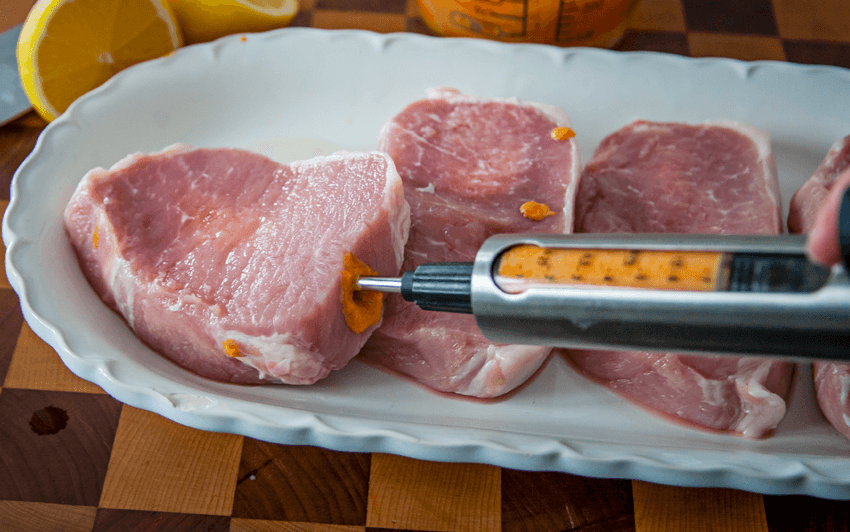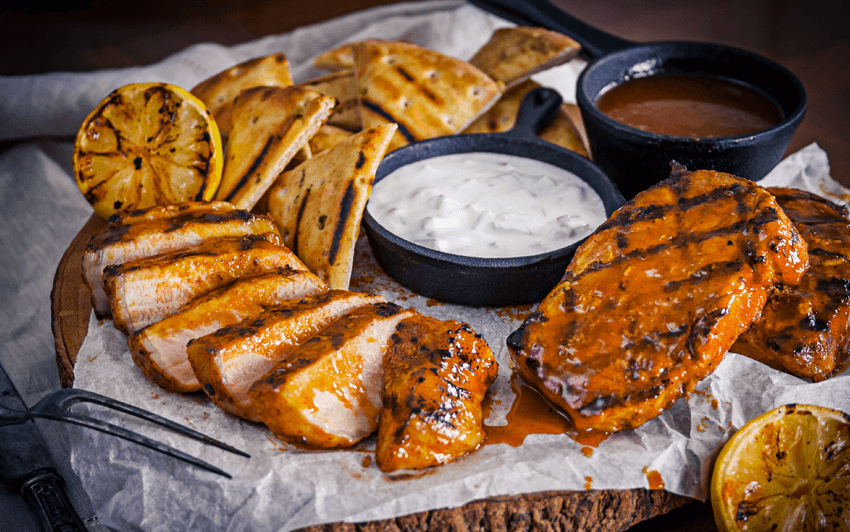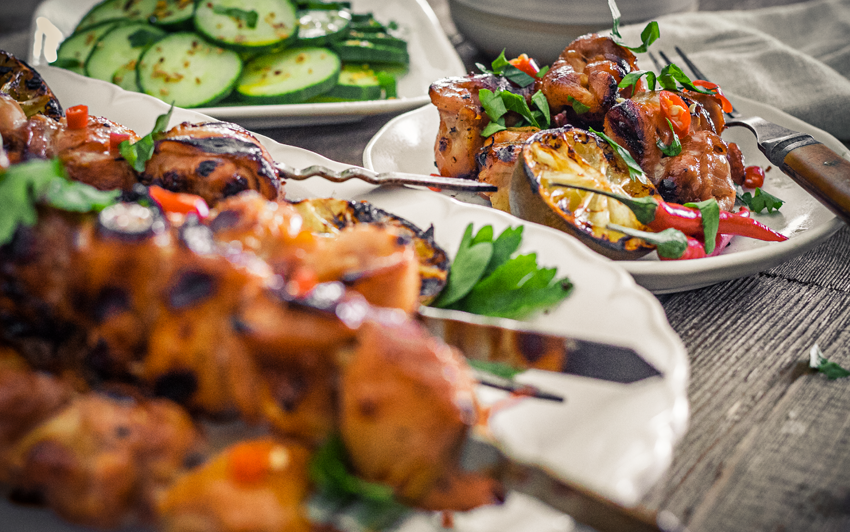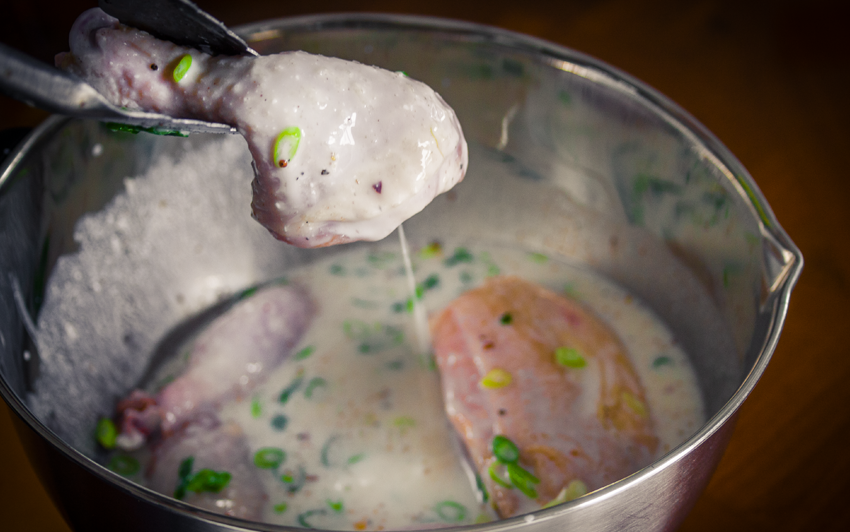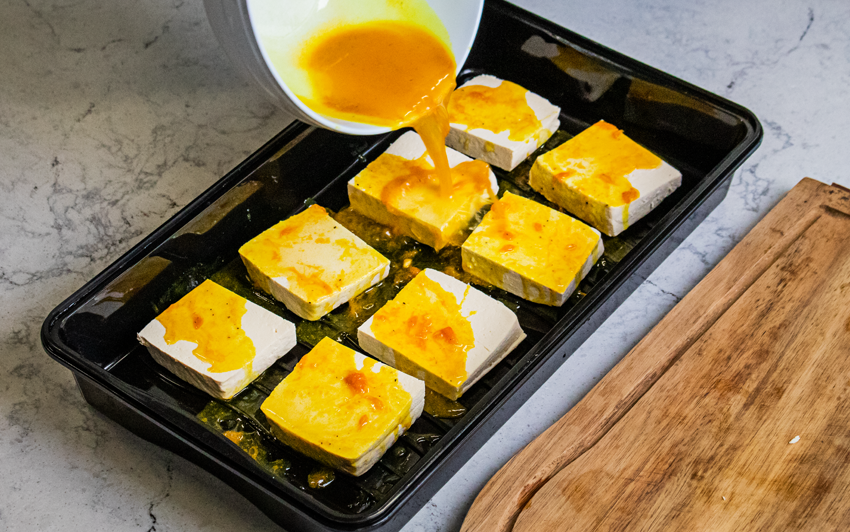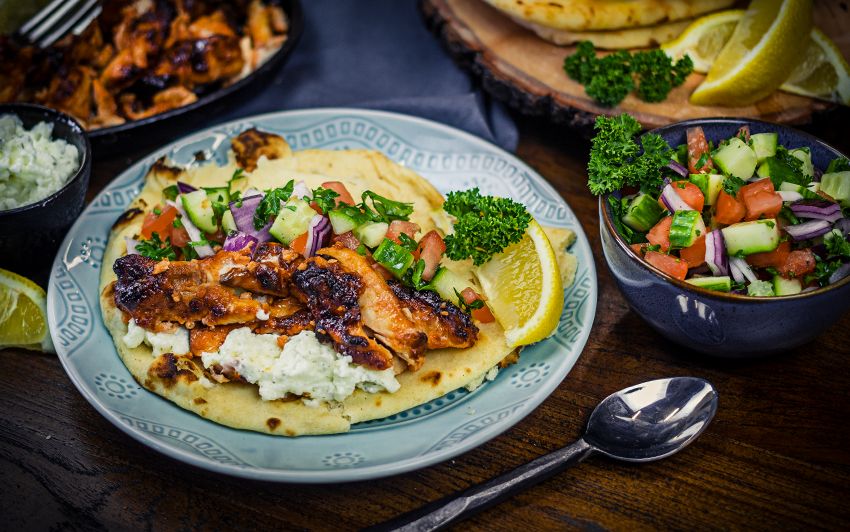
Marinade Master Class | Everything you Need to Know About Marinades
Marinades are a great way to change up a meal, taking it from the same old – same old to a new level of flavor. Explore the flavors of other places from your own home by using unique marinades that capture the essence of a regional dish. How do you make and use a marinade, how much do you need, and how long to use it are just some of the topics we will cover in this article. So, strap in for a rollercoaster of flavor!
What is Marinade and Why You Should Use it
Marinade is a combination of oil, acid and spice to create a pleasing combination of flavors that will chemically break down the proteins and connective tissues of food, specifically meat, however, it can be used on vegetables and fruit. Marinade is a surface treatment that tenderizes the outside of food for a pleasing mouthfeel and enhanced flavor. They cannot penetrate very far into anything unless specifically put there.
How to Get Marinade to Penetrate
Salt is the only thing in a marinade that will sink deep into the things you marinate, specifically meat, to enhance the flavor inside. Everything else is too big and will sit on the surface. To counteract this you can inject food using a marinade injector, slash the food with a knife to create more surface area for the marinade to penetrate, or use a tenderizer that creates holes in the food, like a bladed meat tenderizer.
Try this delicious Tandoori Pork Chop Recipe for yourself.
Pro Tip:
Use marinades without solids for injecting, as well, use light colored marinades when cooking with light colored meats to ensure you don’t have unappetizing staining.Marination is not the same process as brining. Learn more about brining.
What's in a Marinade?
Marinades are a delicious combination that not only help to tenderize your meal but add incredible flavors that can range from tasty to international. There is a golden ratio to follow. The perfect marinade is usually made up of three parts oil to one part acid/enzyme with the addition of flavors.
|
Oil – 3 parts |
Acid/Enzyme – 1 part |
Flavour |
Sweet/Salty (Flavor pt.2) |
|
Use something neutral flavored generally. Oil is a flavor carrier and will enhance certain spices and herbs. Coats surfaces well to ensure better marinating. |
Acids can consist of citrus juices, cola, vinegars, dairy, and alcohols. Acids unwind protein bundles allowing moisture into food. Enzymes consist of fruits like pineapple, papaya, fig, melon and kiwi, as well as ginger. Enzymes break down muscle fibers and collagen, can be very strong – almost melting what they come in contact with. |
Flavors consist of fresh or dried herbs and spices like thyme, fennel, anise, and chili. Flavors can also be aromatics like garlic, onion, chives and hallots. Steeping these in warm oil will deepen and enhance their flavors, just remember to cool the oil before adding it to the marinade mixture. |
Sweet and salty need to be included with any marinade. Sweet will balance any acidic flavors. Salt dissolves in liquid and is molecularly small enough to pass into the food, dragging liquid with it. |
Try this amazing recipe for Thai-style marinated Chicken Skewers.
Fast & Easy Marinades
Remember to use the 3 to 1 ratio for oil and acid/enzyme, then add your flavor and season to taste with sweet and salty. If you are pressed for time, try using your favorite oil and vinegar salad dressing instead of making your own marinade from scratch.
How Much Marinade
You only need 4oz. – ½ cup – 120 ml of marinade per every pound (1 lb / 0.5 kg) of meat. If you plan on using the marinade to baste your food while cooking, consider making extra marinade and setting the extra aside to avoid cross-contamination.
Portuguese Style
Oil+ lemon juice + vinegar+ crushed chillies + garlic
Thai Style
Oil + fish sauce + lime juice + garlic + chillies
Mexican Style
Oil + lime juice + cilantro + ancho chillies
Indian Style
Oil + Yogurt + lime juice + curry + turmeric
Southern Style
Buttermilk + garlic + salt + chili flakes
Fresh & Herby
Oil + lemon juice + fresh rosemary & thyme
Never reuse marinade that has touched raw meat to marinate something new. Leftover marinade can be used on the food you are preparing if you have heated it to a boil and simmered for at least 5 minutes. To avoid the need to cook your marinade, double the recipe and reserve half to baste or use as a dip once the food is ready. If you haven’t doubled your marinade recipe, you can simmer the leftover marinade for at least 5 minutes or turn it into a sauce by simmering a little longer, until it reduces and thickens.
How Long Should You Marinate?
Surprisingly, longer is not better. The longer food rests in marinade, the less delicious it can become. The outside can become chemically cooked or worse, the proteins and connective tissues on the outside dissolve into a mushy mess. It only takes 30 minutes or less for fruit, vegetables, fish, and seafood in marinade and only 3 hours for meat to reach maximum flavor absorption. You can, however, leave sturdy meats, pork, chicken, beef, and game for up to 12 hours, but try not to go past 8. Depending on the strength of the marinade’s acids/enzymes tofu will last up to 24 hours.
Try this fantastic barbecue grilling accessory for yourself, check out the Napoleon Marinade Tray. You can also try this delightfully easy Marinated Tofu recipe for dinner tonight.
Where Should You Marinate?
That heading sounds strange, but it isn’t when you think about it. When you choose to put something in a marinade, you want to use a container that is glass, plastic, or stainless steel, also known as a non-reactive container. The reason is to prevent a metallic taste or changing the color of the food when using something like copper or aluminum. Also, if you are marinating for any longer than 30 minutes, the food should be placed in the refrigerator to prevent bacterial growth.
Try this easy, marinated Chicken Shawarma recipe.
Marinating food is easy, choosing what marinade to use on what meal is hard. What will you create on your Freestyle Barbecue now that you know how to properly make and use a marinade? Share your ideas, success stories, and photos with us on our social pages using the hashtags #NapoleonEats and #FreestyleGrilling.
